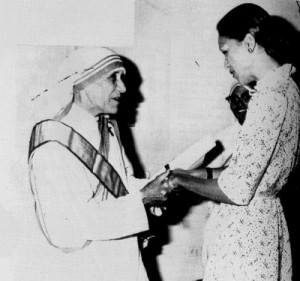Religion and politics: 65 years on, Skopje marks Mother Teresa’s big day
Today (September 12) is an important day for those who follow political developments. Britain’s Labour Party’s choice of leader is revealed and there’s every indication it’s not likely to an airbrushed, auto-idea, focus group-obsessed synthete (to coin a word that sounds like for the sort of inauthentic figures that symbolise much of electoral politics).
But today is also important for quite another reason and it’s all to do with faith. It’s the 65th anniversary of the foundation of Mother Teresa’s Missionaries of Charity and they’re marking the occasion for the first time in her home city of Skopje.
Politics and religion, of course, make for a strange but compelling twinning. They’re both about belief – in the power of hope and the possibility of change. They’re about redemption. As Mahatma Gandhi put it: “those who say religion has nothing to do with politics do not know what religion is.”
I learnt of the event in Skopje from my good friend, British-Albanian academic Gezim Alpion, who knows pretty much all there is to written know about Mother Teresa and is currently writing yet another book on her. Gezim is one of the two speakers at the Skopje symposium.
I find it interesting that he says the event is significant because it contextualizes the little nun. She was, Gezim tells me, “born and brought up in a diocese that embraced Christianity since apostolic times.”
Gezim’s book will focus on the early stage of her life – and the key influences on her place of birth.
He says that uncovering the roots of Christianity in Skopje makes it easier to understand Gonxhe Bojaxhiu, as Mother Teresa was known until she became a nun, as well as her metamorphosis into a religious figure known around the world. And one who has been politically controversial in death, as in life.


